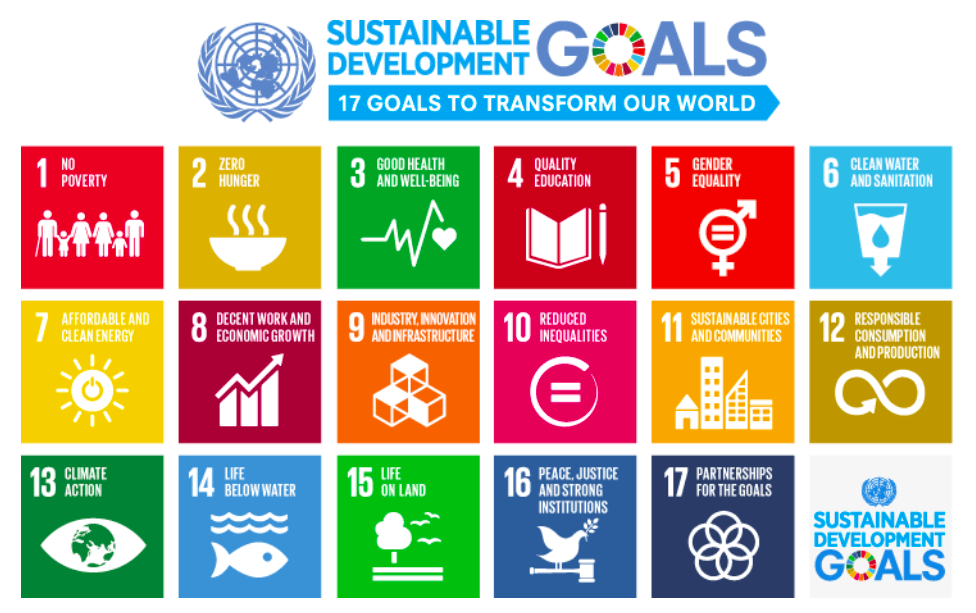Unexpected allies uniting for the greater good

Striving towards sustainable development: the enemy of my enemy is my friend.
ancient proverb
The ancient proverb carries a lot of truth for different sectors of society fighting climate change. Traditionally, members of academia, industry, business, government, and the general public, have shared a prevalent hesitation in trusting the ‘other’ and have remained amongst themselves. Yet, the common enemy of climate change and other emerging sustainability threats force all of us to find new synergies.
Education for Sustainable Development (ESD) has a history of unexpected allies uniting for the greater good as the need for action is obvious. The world is facing extreme weather events, the beginnings of mass climate migrations, and an ongoing global pandemic. It is rather impossible to ignore these human-induced phenomena. Even if one’s local life is currently in order, can we count on it? When will the challenges affecting ‘others’ bounce back on oneself? It’s time to think outside the box, to look outside one’s region and outside one’s own sector.
ESD as a guiding principle for education and training originates from the United Nations (UN) Earth Summit in Rio de Janeiro in 1992. Not only did nations formally agree to set sustainable development as a global goal. In addition, they highlighted the importance of ‘Education, Public Awareness and Training’ as a crucial means of implementation for the Agenda 21, the action plan following the Earth Summit. UNESCO was tasked to identify and implement this threefold, modern education concept, today referred to as ‘ESD’.

ESD was expected (1) to create access to a quality education for all students and develop education systems that would foster sustainability, (2) address the general public to better understand and become advocates of sustainable development, and (3) to embed sustainability in training opportunities across all sectors. ESD was supposed to span all ages and education levels, and foster lifelong learning towards comprehending an idea of enough, for all, forever.
Thirty years later, a number of global and national initiatives are successfully implemented and many more are planned. UNESCO, thanks to the broad engagement from all sectors, has achieved global visibility and has made a difference in improving education and training opportunities in manifold ways. There is lots of reason to be hopeful.
Yet, much remains to be done. The world is nowhere near to educating true global citizens with a sense of planetary responsibility and caring for the life on it. Many people are still excluded from opportunities, education systems have been slow to change, the general public struggles with the sheer existence of climate change, and sustainability in education and training for all sectors of society is not widely implemented.
In 2017, the UN identified ESD as a key enabler of the current global action plan towards a better future for all, the Sustainable Development Goals (SDGs). Thus, it is imperative to move forward and collectively engage in the full range of ESD. But education cannot do it alone.
Most sectors have recognized the importance of achieving sustainability. While in Canada, we might have learnt a lot about communicating between different cultures over the last decades, we might want to apply this basic intercultural knowledge to initiate more trans-sectorial conversations between academia, industry, business, government, and the public. The three elements language, time, and trust from cross-cultural communication applied to the sustainability dialogue could create a framework for understanding and moving forward:
Language
Each sector grapples with a conceptual interpretation of sustainable development. How can we define a future that we do not know and that we mostly define through a list of exclusions or practices we want to get away from? How can we inspire people with negative descriptions of the future? How can giving up things and having less be good? How can we discuss an appropriate education to foster such sustainable development? Some languages do not even contain a word for sustainability as we understand it in English.
Being able to meaningfully grasp the concept from each individual and sectoral perspective and respectfully communicate with ‘the other’ is the basis of moving towards a common goal. Language clarity is both constraint and opportunity.
Time
In addressing time, each sector must be realistic about perceptions of time when setting goals, defining milestones, and monitoring them with different toolsets at their disposal. While some sectors function in cycles of less than a few years, successful education shifts are often measured over decades. To date, we do not know how to quantify the values of a responsible company or a good person, as many of the outcomes will only be realized over considerable timespans. How will we manage to understand cross-sectorial influences? Profound shifts in values and ethical relationships evolve over long periods of time and cannot be traced back to a singular intervention. Yet, all sectors need to understand how to implement and monitor sustainability over time.
Trust
Each sector must establish the confidence that sustainable development will improve their well-being or secure their current situation. They must convince their communities that its achievement is relevant to them and those they care about. They must build on the hope that the concept is achievable, beneficial, and the rewards will be equally shared, so the individual and collective efforts will be worth it.

Companies and organizations in all sectors, including faith-based, are currently singularly engaged in embedding sustainability towards transforming themselves. Each sector is determining their specific measures that are available to them. In moving forward, sharing insight could continuously improve actions and reduce time for implementation. Hearing the same message from multiple sources can also strengthen the credibility and urgency of its content.
The opportunity for collaboration with vital return on investment towards sustainability is at every corner. ESD is a guiding principle for education that goes far beyond formal education systems. With open minds and a genuine willingness to collaborate, society as a whole could benefit from all sectors implementing ESD to reach its full potential as a key enabler of the SDGs towards a sustainable future.

















